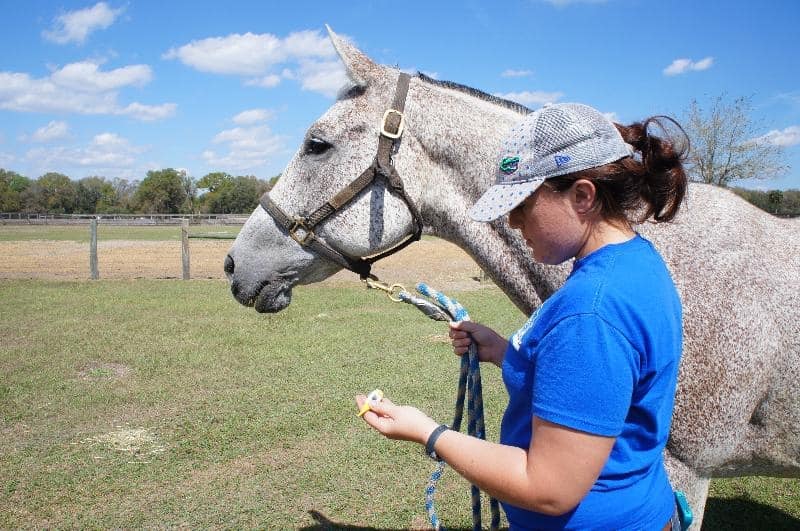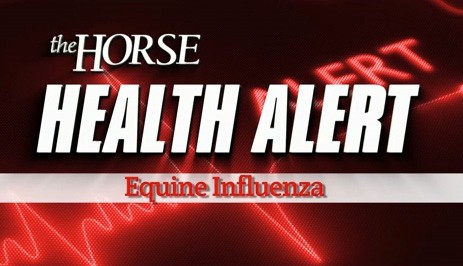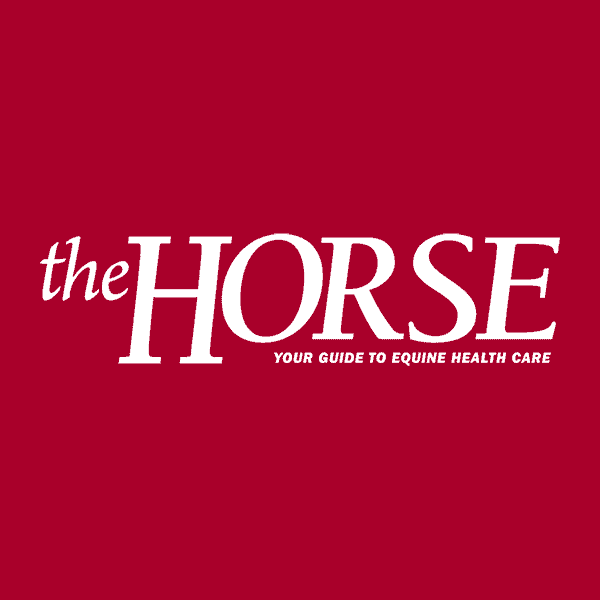Two Horses Confirmed With Equine Influenza in NY

An attending veterinarian has confirmed two cases of equine influenza in Tompkins County, New York. As of March 5, 2020, 16 horses at two separate facilities on one campus are under voluntary quarantine and having their temperatures monitored, according to an Equine Disease Communication Center Report.
About Equine Influenza
Equine influenza is a highly contagious respiratory disease that infects horses, ponies, and other equids, such as donkeys, mules, and zebras. The virus that causes it is spread via saliva and respiratory secretions from infected horses. Horses are commonly exposed via horse-to-horse contact; aerosol transmission from coughing and sneezing; and contact with human’s contaminated hands, shoes, or clothes or contaminated tack, buckets, or other equipment.

Clinical signs of equine influenza infection can include a high fever (up to 106°F); a dry, hacking cough; depression; weakness; anorexia; serous (watery) nasal discharge; and slightly enlarged lymph nodes. Consider monitoring your horse’s health at shows by taking his temperature daily, which can help you pick up on signs of infection early and take appropriate measures to reduce disease spread
Create a free account with TheHorse.com to view this content.
TheHorse.com is home to thousands of free articles about horse health care. In order to access some of our exclusive free content, you must be signed into TheHorse.com.
Start your free account today!
Already have an account?
and continue reading.

Written by:
The Horse Staff
Related Articles
Stay on top of the most recent Horse Health news with















